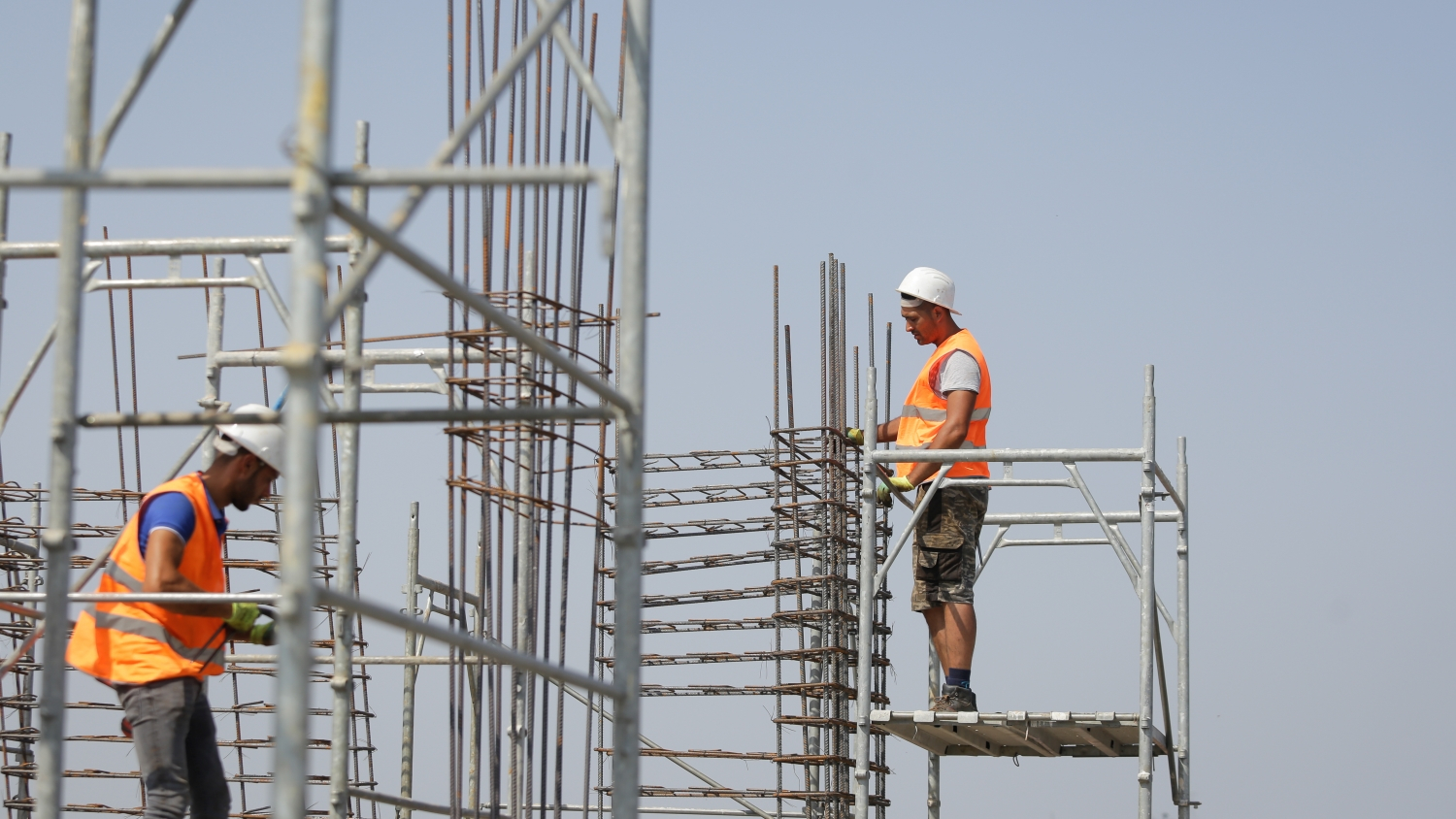Key indicators examined in the report include turnover, profit, investments, workforce size, and salary levels. The survey, which garnered 306 responses, was conducted between 20 August 2024, and 10 September 2024. This year's edition offers a comparative analysis of data from the same period in 2024, 2023, and 2022.
General perception of the business environment in 2024
Romanian companies view 2024 as slightly more challenging for business compared to 2023 (with a general score of 5.5 vs. 5.7), but marginally better than 2022 (general score of 5.4). The primary challenges identified by companies include managing rising costs (77%), attracting and retaining employees (73%), digitalizing and automating processes (61%), managing cash flow (58%), and dealing with political and social instability (32%).
Over the past six months, 19% of companies reported improvements in staff retention, while 70% saw no change. Access to credit and relationships with banks remained stable for 75% and 79% of companies, respectively. Customer relations saw the most improvement, with 43% of companies reporting positive changes, followed closely by digitalization efforts (42%). However, cost control and cash flow remain significant challenges, as 32% of companies experienced deteriorating cash flow, and 38% struggled with controlling costs.
Turnover evolution
Data reveals that most companies continue to project turnover growth of 5%-10% in 2024. However, the proportion of companies expecting this growth has declined, from 24% in 2023 to 20% in 2024. Similarly, the percentage of companies with over 30% growth fell from 13% in 2022 to 11% in 2023, remaining steady in 2024. Businesses with moderate growth (between 5% and 10%) increased by 3 percentage points in 2023 but declined by 4 points in 2024.
An analysis of responses from companies across 10 key industries shows that 21% of companies in trade and 19% in agriculture and food forecast turnover growth of 10%-20%. In the IT sector, 20% of firms predict growth in the same range, while 13% of companies in industrial production expect turnover increases of more than 30% this year.
In 2024, companies achieving sales growth primarily relied on three strategies: expanding their product or service portfolio (55%), increasing investments in marketing and communication (52%), and opening new distribution channels (38%).
Profit evolution
In 2024, 27% of companies expect modest profit growth (1%-5%), a significant increase from 15% in 2022, though slightly lower than 28% in 2023. Companies forecasting profit growth between 5% and 10% also saw an uptick, rising from 13% in 2023 to 17% in 2024. Meanwhile, the percentage of companies reporting profit stagnation (0%) continues to decline, from 15% in 2022 to 10% in 2023, and down to 7% in 2024.
At the industry level, 17% of IT companies, 14% of those in trade, and 13% in energy and utilities expect profit growth of 20%-30%. On the other hand, sectors anticipating profit stagnation include telecommunications (23%), tourism (22%), and agriculture and food (20%).
Employee growth
In 2024, 36% of companies expect their workforce size to remain constant, up from 26% in 2022 and 32% in 2023. Additionally, 23% of companies project modest employee growth (1%-5%) in 2024, compared to 19% in previous years. The proportion of companies expecting a workforce decline of more than 10% has decreased significantly, falling to 6% in 2024 from 12% in 2023.
Industries experiencing employee growth in 2024 include information technology (79%), agriculture and food (68%), construction and real estate (66%), and trade (62%). Meanwhile, industries seeing 20%-30% employee increases are energy and utilities (18%), information technology (13%), and industrial production and agriculture and food (12%).
Salary evolution
Report data highlights an interesting trend in salary growth between 2022 and 2024. The percentage of companies granting modest wage increases (1%-5%) has steadily risen, from 11% in 2022 to 14% in 2023, reaching 21% in 2024, indicating a gradual upward trend in wages.
Conversely, the share of companies offering higher increases (10%-20%) has declined, from 24% in 2023 to 16% in 2024. The percentage of companies providing wage increases above 20% peaked at 18% in 2023 but dropped to 12% in 2024.
At the industry level, sectors with the highest percentages of companies raising salaries in 2024 include trade and agriculture (76%), professional services and transportation (74%), and information technology (72%). However, only two industries reported wage increases above 20%: professional services (13%), and construction and real estate (11%).
Investment evolution
The research shows a notable decline in significant investments (greater than 30%), from 12% in 2022 to 7% in both 2023 and 2024. Additionally, the percentage of companies anticipating no change in investments fell to 22% in 2024, from 28% in 2023.
Moderate investments (5%-10%) are on the rise, reaching 24% in 2024. At the same time, the proportion of companies expecting a reduction in investment has decreased, with only 1% forecasting a 20% reduction in 2024. Overall, the trend points to stabilization and a slight increase in investment activity.
In 2024, the industries with the highest percentages of companies increasing their investments are IT (77%), trade (70%), construction and real estate (69%), transportation (69%), and agriculture and food (63%). Industries where many companies have maintained the same level of investment as in 2023 include industrial manufacturing (31%), professional services (29% of companies), and energy and utilities (28%).
Outlook for 2025
Executives believe that the three key measures to improve Romania's business environment are: legislative and fiscal predictability (83%), faster implementation of EU-funded programs (66%), and public administration digitalization (51%).
Looking ahead to 2025, only 17% of CEOs are confident or very confident in the growth of the national economy, while 26% express confidence in the growth of their respective industries. However, the majority of top managers (40%) have only limited confidence in positive economic development in Romania, compared to 30% who lack confidence in the growth of their own industries.
Despite the ongoing focus on legislative and fiscal predictability, accelerating access to EU funds, and public sector digitalization, concerns about both the global and local economic context continue to weigh on growth forecasts for Romanian companies.
This survey on managers' perceptions of the Romanian business environment in 2024 is based on responses from 306 executive directors and top managers across various industries. The survey was conducted between 20 August 2024, and 10 September 2024. Among the respondents, 3% represent companies with a turnover exceeding €100 million, 4% from companies with turnovers between €50-100 million, 21% between €10-50 million, 34% between €1-10 million, and 38% from companies with turnovers below €1 million. In terms of roles, 48% of respondents hold the position of CEO/President/General Manager, 5% are Vice Presidents/Executive Directors, and 9% are members of the Board of Directors. This study was conducted in partnership with Doingbusiness.ro.










